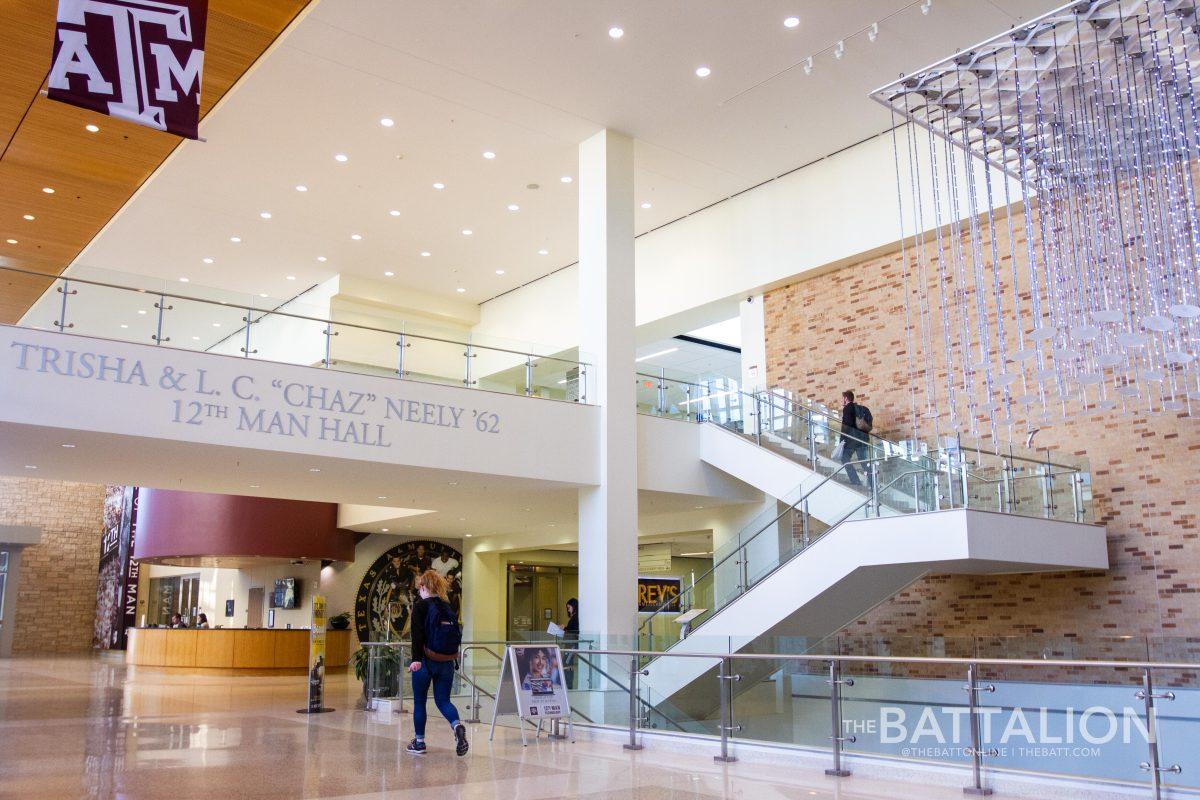Little has changed at Fish Camp since the oldest member of The Battalion’s Editorial Board attended some 12 years ago. In that time, the organization has been plagued by persistent rumors of certain students (mostly men) abusing their positions as counselors to take advantage of incoming freshmen (mostly women).
Such behavior should be called out for what it is: predation. And predation cannot be tolerated. Those inclined to wave off such instances as “isolated” should revisit the often misused idiom “one bad apple.” They should also review the comments made by Lauren Carroll Spitznagle — it is “common knowledge” that incoming students have been sexually assaulted by Fish Camp staff. As the executive director of the Brazos Valley Sexual Assault Resource Center, or BVSARC, Carroll Spitznagle is the relevant subject matter expert here.
Unfortunately, as well-intentioned as Fish Camp Head Director Eric Muñoz might be, his proposed solution — putting Fish Camp chairs through A&M’s Green Dot Bystander Intervention program — isn’t up to the task. Alas, he seems to have misjudged the magnitude of the challenge which faces him.
While Green Dot training might ameliorate the issue of chairs not properly filing reports of sexual assault, it does little to change the fact that such reports are rarely filed in the first place. Worse, it does nothing to directly handle the issue that those who exhibit predatory behaviors aren’t the Fish Camp chairs, but the Fish Camp counselors.
Additionally, more Green Dot training won’t counteract the more systemic and historical issues at play.
The Battalion’s Editorial Board finds it troubling that, aside from its two faculty advisors, Fish Camp’s membership is composed exclusively of students. As best as we can tell, these students receive minimal training on matters of sexual assault — e.g., what it is, how to identify it and the protocols of reporting it. We doubt Fish Camp’s problem would be this pervasive if it were subject to more stringent university supervision.
Also of concern are Fish Camp’s Developmental Program Counselor Packets, which contain brief summations of investigations undertaken by the organization when serious incidents have occurred. Such incidents range in seriousness from inappropriate sexual innuendos to student deaths. But these descriptions — which are meant to “widen [one’s] perspective and put purpose and reason behind why Fish Camp has to make certain decisions,” according to the documents — make no mention of sexual assault or harassment. This absence can only have one of two explanations: Either Fish Camp has never investigated a sexual assault claim, or the organization has simply not seen fit to include such investigations in their counselor packets. Neither explanation bodes well for the seriousness with which Fish Camp has taken allegations of sexual assault in the last quarter century. Nor does it bode well for the incoming freshmen committed to their charge.
And then there is the nature of Fish Camp’s application process. Nothing The Battalion has uncovered has evidenced a mechanism for identifying potential predators before they become staff members. Instead, those with whom The Battalion spoke confirm what many readers already know to be true: The Fish Camp application process is a popularity contest. There is little surprise in this. As has been said previously, Fish Camp’s staff is comprised entirely of students. Unfortunately, this is often what happens when 18-22 year olds are in charge of hiring their peers for positions in a student organization.
However, it must also be acknowledged that Fish Camp isn’t like many of the other organizations at Texas A&M. The nature of Fish Camp is such that older college students are put into close and extended contact with what are effectively still high school students. This contact not only occurs in isolated environments like campgrounds in the middle of the woods, but in a student’s first year, when their Fish Camp counselors are meant to be providing mentorship. Because of this, it isn’t merely that Fish Camp’s application process allows potential predators to pass through without being identified. By accepting charismatic students who are good at breaking down the inhibitions of anxious high schoolers, however unintentionally, Fish Camp’s application process facilitates this predation as well.
For these reasons, it isn’t sufficient for Fish Camp’s standards to be on par with other student organizations — it must exceed them.
The Battalion therefore makes the following recommendations to Muñoz, the organization in his charge and university officials more broadly:
I. The Green Dot Bystander Intervention Program should be required of all members, not ONLY the chairs. This includes both staff and leadership, but this training is especially important for counselors.
II. Fish Camp’s Counselor Packets should include several examples of findings from sexual assault investigations, as well as lessons learned from these incidents. If Fish Camp has never performed such an investigation before, they should review their practices and make public why this has never occurred.
III. Fish Camp needs to invite subject matter experts into the room during their application and training processes. We recommend Muñoz reach out to A&M’s Health Promotion office and Brazos Valley Sexual Assault Resource Center, specifically. Health Promotion coordinator Denise Crisafi (who manages the STAND Up Workshops on campus) and Lauren Carroll Spitznagle of BVSARC both told The Battalion that they would be happy to work with Fish Camp.
IV. If Fish Camp is unwilling to make the necessary changes to protect incoming students, the university must step in and handle the situation itself. If, heaven forbid, other incidents occur and criminal investigations are opened, no one would take comfort in the university not being “officially” responsible.
The Battalion’s editorial opinion is determined by its Editorial Board, with the editor-in-chief having final responsibility.
Brady Stone, Editor-in-Chief
Myranda Campanella, Managing Editor
Joshua Howell, Opinion Editor
Julia Potts, News Editor
Bec Morris, News Editor
Shelby McVey, Life & Arts Editor
Hannah Underwood, Sports Editor
Update, 9:21 p.m. 2/04: After a follow up interview with Spitznagle, it is clear that she did not intend to imply that sexual assault is common knowledge among her peers, but rather among students at Texas A&M. The article has been corrected to reflect this.
Original Editor’s note: A previous version of this story stated that Lauren Carroll Spitznagle, executive director of the Brazos Valley Sexual Assault Resource Center, said “it is ‘common knowledge’ among her peers that students have been assaulted by Fish Camp staff.” This has been corrected to say “it is ‘common knowledge’ among her peers that students have been assaulted through Fish Camp.”



























